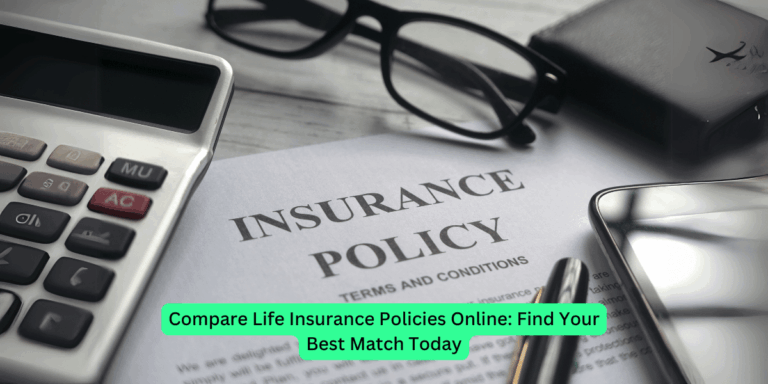Discover Deals on Health Insurance Plans
Finding the right health coverage at a good price is key for everyone. There are many choices out there, making it hard to pick the best one.
This guide aims to make it easier. It offers tips on affordable insurance options. You’ll learn how to compare plans and find ways to save money.
By looking into different health insurance plans, you can get great coverage without spending too much.
Understanding Health Insurance Basics
Starting your search for discovering deals on health insurance plans means first understanding how it works. Knowing the basics is key to finding the right coverage for you.
Premiums, Deductibles, and Copayments
Let’s look at the main parts of health insurance. Your premium is the monthly cost for coverage. The deductible is what you pay first before your insurance helps. Copayments are fixed costs for services after you’ve met your deductible.
For instance, if your premium is $300 monthly, your deductible is $1,000, and your copay for a doctor visit is $20. You’ll need to manage these costs in your healthcare budget. Knowing these helps you plan your expenses and choose the right plan.
Two more important ideas are out-of-pocket maximums and coverage limits. The out-of-pocket maximum is the yearly cap on your healthcare costs. After hitting this, your insurance covers 100% of eligible costs. Coverage limits are the max your insurance pays for certain services or treatments.
Knowing these limits is key to finding deals on health insurance plans that match your budget and health needs. By understanding these basics, you can better navigate the healthcare system and make choices that are good for your health and wallet.
Types of Health Insurance Plans Available
Health insurance plans vary to fit different needs and budgets. It’s important to know the types to choose wisely.
HMOs (Health Maintenance Organizations) are cost-effective and focus on prevention. You must pick a primary care doctor who manages your care and refers you to specialists. HMOs are cheaper but limit your choice of doctors.
PPOs (Preferred Provider Organizations) let you see any doctor, in-network or out, without a referral. But, seeing out-of-network doctors costs more. PPOs are great if you want to choose your doctors freely.
EPOs (Exclusive Provider Organizations) are a mix of HMOs and PPOs. They have a network of doctors and cover emergencies outside the network. EPOs don’t need a primary care doctor or referrals for specialists in their network.
Catastrophic plans are for emergencies and are less expensive. They have high deductibles and are for people under 30 or those with a hardship exemption. These plans are not for everyone but can help with big medical bills.
When picking a plan, think about your health needs, budget, and what you prefer. Knowing the pros and cons of each type helps you choose the right one. Finding deals on these plans can make healthcare more affordable.
Marketplace vs. Private Health Insurance
It’s important to know the difference between marketplace and private health insurance. Marketplace health insurance plans are bought through the health insurance marketplace. This marketplace was set up by the Affordable Care Act. These plans offer full coverage, including essential health benefits.
Private health insurance plans are sold directly by insurance companies or through brokers. They vary a lot in cost, coverage, and who can get them. Private plans often let you choose your doctors and what’s covered.
Cost is a big difference between the two. Marketplace plans are cheaper because the government helps pay for them. Private plans might cost more but can be more customized to your needs.
Who can get marketplace health insurance is limited. You need to not have affordable coverage from your job and meet income rules. Private health insurance is available to more people. But, having health issues can affect how much you pay.
In summary, both types of health insurance have their good and bad points. Knowing these differences helps you discover deals on health insurance plans that fit your needs and budget.
How to Discover Deals on Health Insurance Plans
Finding the best health insurance plans is more than just looking at prices. It’s about knowing your options and how to find them. To discover deals on health insurance plans, you need to understand the different choices and how to navigate the market.
Comparing different plans is a key step in finding health insurance deals. Look at more than just the cost. Check deductibles, copays, and the network of healthcare providers. Online tools can help you compare plans easily.
Don’t overlook off-exchange plans when searching for deals. These plans might offer more flexibility than marketplace plans. Make sure they fit your needs by carefully reviewing them.
Special enrollment periods (SEPs) can also lead to better deals. SEPs happen after big life events like marriage or having a child. Knowing about these periods can help you get a plan outside the usual open enrollment time.
Staying up-to-date with health insurance plans and their benefits is key. Regularly check and adjust your coverage to save money. This way, you can find the best deal for you.
By using these strategies, you can find deals on health insurance plans that are affordable and cover your needs. Remember, the secret to the best deals is thorough research and comparison.
Government Subsidies and Assistance Programs
It’s important to know about government subsidies and assistance programs for health insurance. These help make health insurance cheaper for those who qualify.
Eligibility for government subsidies depends on income and family size. If your income is between 100% and 400% of the federal poverty level, you might get premium tax credits. These can lower your monthly health insurance costs a lot.
To get government subsidies, you need to sign up for a health insurance plan through the Health Insurance Marketplace. You can do this during the open enrollment period or a special enrollment period if you’ve had a big life change. You’ll need to share personal and financial details to see if you qualify for subsidies.
Assistance programs like Medicaid and the Children’s Health Insurance Program (CHIP) help low-income families get health coverage. Who qualifies can vary by state. Some states have expanded Medicaid to help more people.
To get the most out of these programs, it’s key to understand the rules and how to apply. This way, you can pay less for health insurance and make sure you’re covered.
By using these programs, Americans can discover deals on health insurance plans that work for them. This makes healthcare more affordable and reachable for everyone.
Factors That Affect Health Insurance Costs
Many things influence the cost of health insurance. Knowing these factors helps you find plans that fit your budget and needs.
Age is a big factor, as older people often pay more due to health risks. Location also matters, as healthcare costs differ by area.

Health status is key, as conditions like pre-existing ones or chronic illnesses raise premiums. The details of your plan, like deductibles and copays, also affect the cost.
The type of plan you choose, like HMO, PPO, or EPO, impacts costs. The number of people covered and whether it’s for one or a family also changes the premium.
Understanding these factors helps you choose wisely. This way, you can find health insurance plans that meet your needs and budget.
Special Enrollment Periods and Open Enrollment
Health insurance enrollment isn’t just once a year;Special Enrollment Periodsand Open Enrollment give you chances to get or change coverage. Knowing about these times is key to making smart health insurance choices.
Special Enrollment Periods start when big life events happen, like losing a job, getting married, or having a baby. These events let you sign up for a new health plan or switch your current one, even when it’s not Open Enrollment time. Qualifying life events include big changes in your family, job, or where you live.
Open Enrollment is when you can pick or change your health plan without a big life event. It happens once a year, usually at the end of it. It’s a big chance for people and families to check their health insurance and make changes if needed.
To Discover Deals on Health Insurance Plans during these times, compare plans and think about your health needs. Also, look for subsidies or help programs. Being well-informed and active can help you find great coverage that’s affordable.
By using Special Enrollment Periods and Open Enrollment wisely, you can make sure your family has the health coverage you need, when you need it.
Strategies to Lower Your Health Insurance Costs
There are ways to cut down on health insurance costs. You can choose the right plan, share costs, and focus on wellness. These steps can help you save a lot on health insurance.
Choosing the right health insurance plan is key. Look at different plans from the marketplace or private insurers. Think about the deductible, copayment, and out-of-pocket maximum when picking.
Cost-sharing reductions (CSRs) can also help. They lower what you pay for deductibles, copayments, and coinsurance. To get CSRs, you must sign up for a Silver plan through the marketplace and have a certain income level.
Wellness programs are another great way to save. Many plans offer programs for healthy living. These can include exercise, healthy eating, and preventive care. By joining these programs, you can get healthier and save money on insurance.
Some plans also offer discounts for Discover Deals on Health Insurance Plans. These discounts are for health and wellness activities or reaching health goals. Make sure to check your plan for these benefits.
In summary, saving on health insurance costs needs effort and knowledge. Pick the right plan, use cost-sharing, and join wellness programs. Always check your plan and look for Discover Deals on Health Insurance Plans to save.
Health Insurance for Special Situations
People with special health needs need more than regular health insurance. Special health insurance situations demand a deeper understanding of available options to ensure that all individuals can find coverage that meets their unique needs.
Those with chronic conditions need health insurance that covers ongoing care. These plans help manage the condition with treatments and medications. It’s key to check the coverage details, including any limitations or exclusions related to chronic care.

Pregnant women have unique health insurance needs. Plans that cover prenatal care, delivery, and postpartum care are vital. Some plans also cover fertility treatments, which is important for those planning a family.
Individuals with dependents, like children or elderly parents, need family coverage. These plans offer complete coverage for all family members. This ensures everyone has access to necessary healthcare services.
Finding deals on health insurance for special situations can be tough. But, it’s not impossible. By understanding the options and reviewing plan details, individuals can find affordable health insurance that meets their unique needs.
Conclusion: Making the Right Health Insurance Choice
Choosing the right health insurance is key for your health and wallet. Learning about health insurance, looking at different plans, and finding ways to save can help. This way, you can find health insurance deals that fit your life.
Whether you’re alone or with a family, good health insurance is a must. It keeps you safe from big medical bills. Look at your choices, think about your budget, and what health care you need. This will help you pick the best plan.
With what you’ve learned, you can easily find the right health insurance. Start looking at plans now. This is the first step to protecting your health and money for the future.





